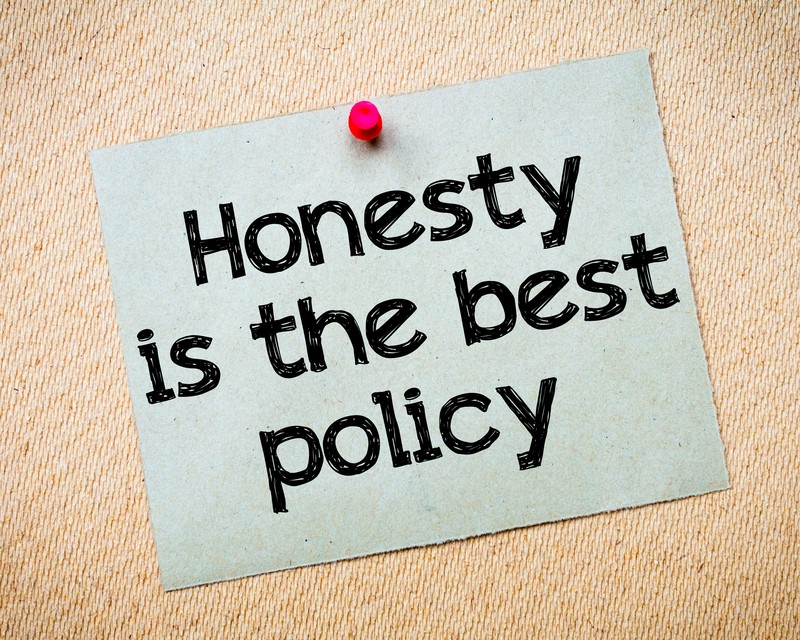We all lose our temper from time to time. It’s a natural part of our emotions. And expressing anger is actually a healthy thing to do in our relationships with others. Expressing our differences in opinion allows us to have healthy conflict and many times come to an agreement or understanding that works for everyone. It can be a touchy subject in general so I wanted to write about how to deal with anger.
That being said, too much anger is counterproductive. Expressing anger inappropriately can be harmful to relationships, both personal and at work. Inappropriate in this context can be too much anger, too often, or a times that are only going to make things worse, not better. In this article we will look at how to deal with anger and better control your emotions.
I originally wrote this article for the website Lifehack. You can see it and more of my articles written for Lifehack here. Let’s take a deeper look at how to deal with anger.
Expressing Anger: Unhealthy vs. Healthy Anger
Anger is a natural and normal part of almost any relationship. This includes relationships with your spouse or significant other, kids, bosses, friends, family, etc. Anger provides us with valuable information, we just have to be willing to listen to it. It clues us in to areas where we disagree with others and things that need to be changed or altered.
3 Common Unhealthy Ways To Express Anger
Here’s some common yet unhealthy ways to express anger that you should avoid.
Being Passive Aggressive
This is a term many of us are familiar with. Passive-aggressive behavior happens when someone is angry but uses indirect communication to express their anger.
Some of the more common passive-aggressive behaviors include the silent treatment, making comments about someone behind their back, being grumpy, moody, or pouting, or simply not doing tasks or assignments that they should.
This is a passive-aggressive person’s way of showing their anger. Not very productive but extremely common.

Poorly Timed
This is something I’ve been guilty of. I tend to be pretty open and out there with my emotions. As such, I’ve been known to express my anger in a situation where it can’t really do any good.
An example would be getting angry at one person in front of a crowd of people. All that does is make people uncomfortable and shuts them down. It’s not a healthy way to express anger or disagreement with someone.
Ongoing Anger
Being angry all the time is most often a symptom of something else. It’s healthy and normal to express anger when you disagree with someone. However, if someone is angry most of the time and always seems to be expressing their anger to everyone around them, this won’t serve them well.
As a matter of fact, over time, people will start to avoid this person and have as little contact as possible. The reason being is no one likes being around someone who is angry all the time and it’s a no-win situation.
3 Healthy Way to Express Anger
What about the healthy ways to adapt? Some healthy ways to express anger in our relationships include:
Being Honest
Expressing your anger or disagreement in an honest fashion. By this, I mean be truthful about what it is that is making you angry. Sometimes this will entail walking away and thinking about it for a bit before you respond. But that’s okay because you want to be honest.
Don’t say you’re mad at something someone did or said when it’s really something else that upset you.

Being Direct
Similar to being honest, being direct is a healthy way to express anger.
Don’t talk around something that is making you angry. Don’t say that one thing is making you angry when it’s really something else. And don’t stack items on top of each other so you can unload on someone about 10 different things 6 months from now.
Be direct and upfront about what is making you angry. Ensure you are expressing your anger to the person who upset you or you are angry at, not to someone else. This is very counterproductive.
Being Timely
When something makes you angry, it’s much better to express it in a timely manner. Don’t keep it bottled up inside of you, that’s only going to do more harm than good.
Think of the marriages that seem to go up in flames out of nowhere when the reality is someone kept quiet for years until they hit their breaking point.
Expressing anger as it occurs is a much healthier way of using anger to help us guide our relationships in the moment.
How To Deal With Anger
So if you feel angry, how should you deal with it right at that moment?
Slow Down
Maybe this has happened to you as well. From time to time, I receive an email at work that makes me so angry that steam is probably pouring out of my ears.
In my less restrained moments, I have been known to fire off a quick response. And that typically has ended about as well as you might imagine.
When I actually walk away from my computer and go do something else for a while, I am able to calm down and think more rationally. After that happens, I am able to respond in a more appropriate and productive manner.
Keep It to the “I’s”
As in it’s you that is upset. You are upset because of something. Don’t accuse people of making you upset. You don’t want to place blame by saying something like “You always want to upset me because you don’t put away your dishes”. Say something more like “Having dirty dishes laying on the counter upsets me – can you work with me to come to a solution?”.
When you are accusatory towards someone, all that does is increase the tension. This doesn’t usually do anything except make your anger rise higher.
Workout
I have definitely used this technique when I have been upset. If something happens that angers you, see if you have the opportunity to burn off some of the anger.
Being able to hit the gym to get a hard workout in is great. If this isn’t an option, see if you can go for a run or a bike ride. If you are at work when you become angry and the weather permits, at least go outside for a brisk walk.
Besides working some of your anger out through exercise, this also helps to give your mind a chance to work through some ways to address what it is that upset you.

Seek Help When Needed
There are times when we could all use some help. Life can be stressful and overwhelming. It’s perfectly fine to seek some help from an expert if it will help you get back to a healthy balance.
If you find that you are angry all the time, it might be a good idea to go talk to an expert. They can give you some sound advice and ideas on how to get your anger to a more manageable, and healthy level.
How To Control Your Emotions
Having out of control emotions other than anger can lead to similar challenges in our lives. If you find yourself with emotional overflow here’s some ideas to help get your emotions under control.
Practice Relaxation
We all seem to lead incredibly busy lives, and that’s a good thing if we are loving the life we are living. That being said, it is very beneficial to our physical and mental well-being to take time out for relaxation. That can mean spending time doing things that help us calm down and relax like being around people we enjoy. It could be making time for things that help bring us balance like a healthy diet and exercise.
Many people incorporate techniques such as yoga and meditation to calm their minds and balance their emotions. Whatever your choice is, ensure you take time out to relax.
Laugh
Incorporating humor and laughter on a regular basis will help keep emotions in check and things in a healthy perspective.
Remember, life isn’t a race. It’s a journey meant to be enjoyed fully along the way. Make sure you take time out to laugh and have fun.
Surround yourself with people that like to laugh and enjoy life. Don’t work at a job that just causes you stress which can lead to anger. Work at something you enjoy doing and brings a smile to your face.

Be Grateful
I was just having this conversation with one of my daughters who was stressed about school. We talked about the importance of being grateful for the many things in our lives that we seem to take for granted.
It’s easy to focus on the bad in life and the things that cause us negative emotions. It’s vitally important to remind ourselves of all the wonderful things in life that bring us positive emotions, things that we easily forget because we get caught up in the whirlwind of day to day life.
Take time out each day to remind yourself of a few things you are grateful for.
Final Thoughts
I was just having this conversation with one of my daughters who was stressed about school. We talked about the importance of being grateful for the many things in our lives that we seem to take for granted.
It’s easy to focus on the bad in life and the things that cause us negative emotions. It’s vitally important to remind ourselves of all the wonderful things in life that bring us positive emotions, things that we easily forget because we get caught up in the whirlwind of day to day life.
Take time out each day to remind yourself of a few things you are grateful for.
Take care of yourself,
Mat A.

